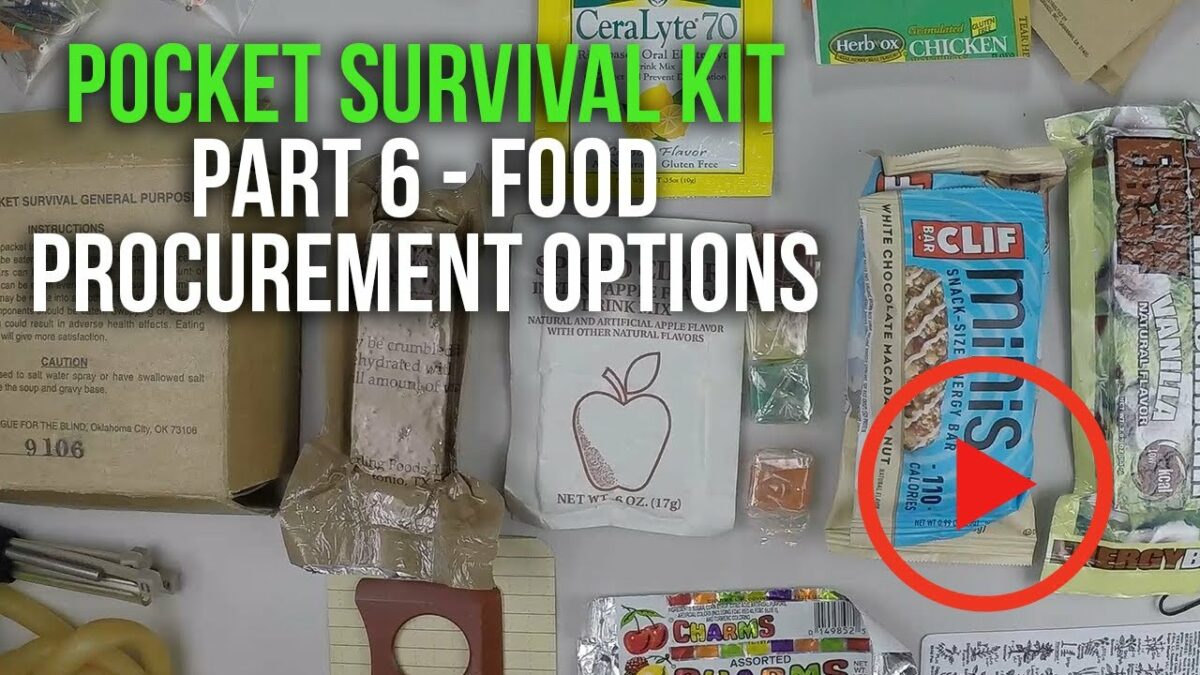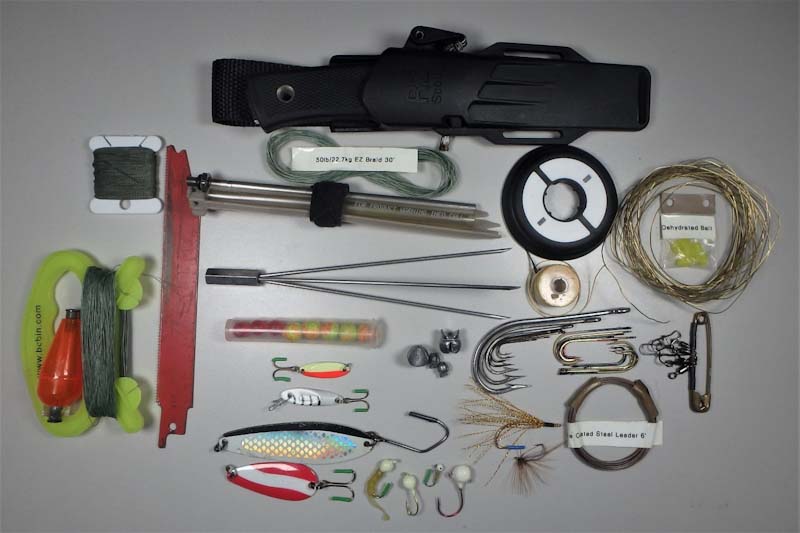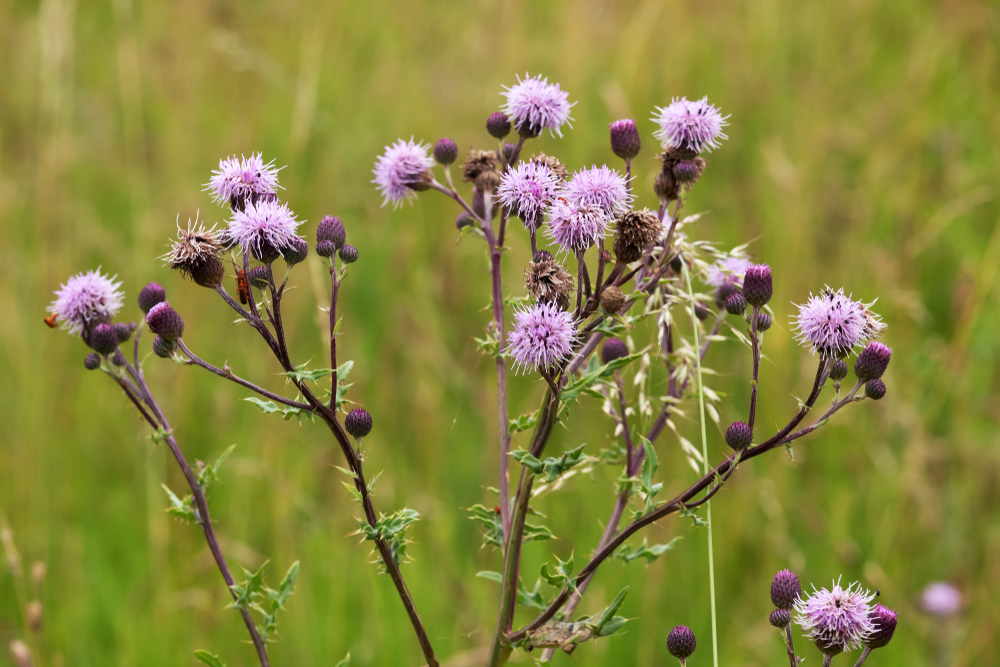In the face of an unpredictable and rapidly changing world, a growing community of individuals known as preppers and survivalists have emerged, determined to prepare for the worst. These resilient individuals possess an unwavering commitment to self-reliance and have developed innovative methods to procure food when traditional food sources become scarce or inaccessible.
This is pretty much what others think of us, and to a certain extent, this description is quite accurate, especially the last part with food procurement.
This article explores four extraordinary approaches that could be employed by preppers and survivalists to obtain sustenance in the aftermath of a disaster. Their resourcefulness and adaptability are showcased through unconventional hunting practices, foraging in unexpected locales, embracing unconventional food sources, and the moral dilemma of resorting to theft.
By delving into these four unconventional strategies for securing food, we can all gain insight into the remarkable resourcefulness and resilience of human beings. Preppers boldly navigate uncharted territories, challenge societal norms, and stretch the boundaries of their culinary comfort zones to ensure their survival in the most adverse conditions.
While it is true that experienced preppers and survivalists are typically well-prepared and have taken precautions to ensure their own food security in challenging times, it is essential to acknowledge the possibility of unforeseen circumstances. Even we may find ourselves in situations where we are compelled to resort to unconventional practices that society generally disapproves of.
We invest considerable time, effort, and resources into developing self-sustaining systems, stockpiling supplies, and honing their survival skills. We take proactive measures to mitigate risks and protect ourselves and our loved ones in the face of potential disasters.
However, no plan is foolproof, and even the most experienced preppers understand the inherent unpredictability of catastrophic events. In extreme scenarios where all contingency plans may fade, we may be confronted with unprecedented challenges that push us beyond our usual practices.
The possibility of societal collapse, resource depletion, or the emergence of unforeseen threats cannot be entirely dismissed. In such dire circumstances, the rules and norms governing our every day lives may no longer hold control, and individuals may be compelled to adapt and make difficult decisions to ensure their survival.
Hunting more than just wild game
In extreme and hypothetical scenarios where desperate circumstances prevail, some individuals might contemplate hunting alternative sources of protein, including reptiles, insects, and even domesticated pets such as cats and dogs. However, it is crucial to emphasize that these actions are seen as morally wrong by the general public and often illegal, as they disregard the inherent value of animal life and the principles of compassion and empathy.
During times of extraordinary desperation, where human lives are at stake, individuals may find themselves faced with unimaginable choices. In such dire circumstances, the hierarchy of needs and the primal instinct for survival can potentially override ethical considerations. However, it is important to stress that these choices should never be taken lightly, and all possible alternatives should be explored before resorting to such extreme measures.
While the mere discussion of hunting pets or any animal protected by laws raises profound ethical concerns, acknowledging the possibility of such actions serves as a reminder of the extreme conditions that can push individuals to make unthinkable choices.
While it is difficult for many of us to fathom the idea of consuming our beloved pets, it is important to recognize that cultural practices differ around the world. In some regions like China, cats, and dogs are consumed as a delicacy rather than for subsistence. Although unimaginable for most, history has shown that extreme hunger can drive people to the most desperate measures.
While discussing these scenarios, it is crucial to approach the topic with empathy and understanding, acknowledging the complexities of survival in dire circumstances. However, it is essential to emphasize that the purpose of such discussions is not to endorse or promote these actions but to provoke thought and deepen our understanding of the human condition in extreme situations. Our bonds with pets and compassion for animals are fundamental aspects of our humanity, which should be upheld even in the face of adversity.
Foraging in parks and in the public domain
Foraging in parks and in the public domain could be a valuable method employed by preppers and survivalists to procure food in the aftermath of a disaster. Exploring the abundance of edible plants and resources in these areas can provide a lifeline when traditional food sources are scarce. Here are a few examples of wild foods that can be found in such environments:
- Edible Greens and Herbs: Many parks and public areas are home to a variety of edible greens and herbs. Dandelion greens, plantain leaves, chickweed, and clover are just a few examples. These nutritious plants can be foraged and incorporated into meals or used in herbal teas.
- Berries and Fruits: Depending on the region and season, parks can offer a bounty of wild berries and fruits. Look for blackberries, raspberries, blueberries, or wild apples and plums. These can be eaten fresh or preserved for later use.
- Nuts and Seeds: Some public spaces feature trees that bear nuts and seeds. Acorns, chestnuts, hickory nuts, and pine nuts are among the options available. Proper processing may be necessary to remove bitter or toxic elements before consumption.
- Mushrooms: Parks and forests can be a treasure trove for wild mushrooms. However, caution must be exercised as misidentifying mushrooms can be dangerous. Those with knowledge and experience can identify edible varieties like morels, chanterelles, or oyster mushrooms.
- Edible Flowers: Certain flowers found in parks are not only visually appealing but also edible. Nasturtiums, violets, daylilies, and elderflowers are examples of flowers that can be incorporated into salads, desserts, or used for infusions.
It is important to note that proper identification and knowledge of wild foods are crucial to ensure safety. Foraging should only be done in areas where the gathering is allowed and with respect for the environment. Additionally, parks and public spaces may have specific rules and regulations regarding foraging, so it is important to be aware of and adhere to them.
By familiarizing yourselves with the local flora, you could harness the natural resources available in parks and public domains to sustain yourselves during challenging times. Foraging not only provides essential sustenance but also connects individuals with the bountiful offerings of the natural world. And the best part is that the general public is unaware of the wild edibles that may be available all around them.
Eating roadkill, pet food, and spoiled food items
In dire circumstances, humans may find themselves exploring unconventional food sources such as roadkill, pet food, and spoiled foods when no other options are available. While these choices may seem extreme, understanding how to approach and consume different types of spoiled food can be crucial for survival. Here are some considerations for approaching these unusual food sources:
- Roadkill: Roadkill refers to animals that have been accidentally killed by vehicles. When considering roadkill as a potential food source, it is essential to prioritize safety and adhere to local laws and regulations. Fresh roadkill can be safe to consume if the animal is still warm, has no visible signs of disease or decomposition, and has not been exposed to harmful substances like spilled chemicals. However, it is recommended to have knowledge of animal anatomy and butchering techniques or seek guidance from experts to ensure proper handling and minimize health risks.
- Pet Food: Pet food can be an option in extreme situations, but it is crucial to exercise caution. Not all pet food is suitable for human consumption, as it may contain ingredients that are unsafe or not intended for human consumption. If considering pet food as an emergency food source, carefully read the labels and select options that are primarily made from safe and recognizable ingredients. However, relying on pet food for an extended period is not recommended, as it may lack the necessary nutrients for human health.
- Spoiled Food: Consuming spoiled food carries significant risks due to potential bacterial contamination and foodborne illnesses. However, in desperate situations where no other food is available, individuals may have to assess the level of spoilage and make calculated decisions. Moldy bread can be consumed by cutting off the affected areas, while canned foods with bulging or damaged packaging should be avoided. Trust your senses and look for signs of rancidity, off odors, and abnormal texture in determining the safety of spoiled food. It is important to note that consuming spoiled food should be a last resort, and efforts should be made to find alternative food sources whenever possible.
When consuming any unusual or spoiled food, it is vital to prioritize personal safety and health. Maintaining hygiene practices, proper food preparation techniques, and knowing when to abstain from consuming potentially risky foods are essential considerations.
Stealing food
While discussing survival strategies in desperate scenarios, it is important to acknowledge that stealing food can be a consideration for some individuals. However, it is crucial to approach this topic with caution and highlight the ethical and legal implications associated with theft. The act of stealing from stores, warehouses, neighbors, or raiding homes for food should never be encouraged or condoned.
In dire circumstances, where food scarcity and hunger prevail, the desperation to ensure one’s survival may push some individuals towards desperate measures. However, it is essential to understand that resorting to theft jeopardizes not only personal safety but also the trust and well-being of others within the community.
Stealing food from stores, warehouses, or neighbors not only violates laws but also erodes the social fabric that holds communities together. Engaging in theft can lead to strained relationships, conflict, and a breakdown of trust among individuals who are already facing immense challenges.
Raiding homes to obtain food is an especially dangerous option, as it involves trespassing and potential confrontations with the occupants. This action can escalate to violence, placing both the individuals seeking food and the residents of the homes at significant risk of harm or even death.
Although, for some, it can become a viable solution for procuring food, it’s crucial to emphasize that theft should never be considered a viable long-term solution for survival. Communities can better navigate times of crisis by fostering cooperation, sharing resources, and working together to find sustainable solutions.
In extreme situations where stealing may seem like the only option, individuals should prioritize their personal safety and well-being. Exploring legal alternatives, adapting survival skills, and seeking assistance from legitimate channels should be the primary focus in order to maintain one’s integrity and preserve the values that bind communities together.
Concluding
In the face of disaster, when traditional food sources become scarce or inaccessible, preppers and survivalists may find themselves contemplating unconventional methods to obtain sustenance. We have explored several alternative strategies, including hunting beyond wild game, foraging in parks and public domains, considering unusual food sources such as roadkill and pet food, and even the controversial option of stealing. However, it is crucial to approach these topics with caution and a deep understanding of the ethical, legal, and moral implications involved.
While extreme circumstances can push individuals to consider unthinkable choices, it is important to maintain our humanity and uphold our values even in times of desperation. By discussing these topics, we gain insights into the resourcefulness and adaptability required in survival scenarios. However, it is crucial to stress that these discussions are not intended to promote or endorse actions that undermine ethical or legal frameworks.
Ultimately, our goal should be to prepare for disasters, both individually and collectively, while upholding the values that define our humanity.










Travelin On | July 26, 2023
|
“By delving into these four unconventional strategies for securing food, we can all gain insight into the remarkable resourcefulness and resilience of human beings. Preppers boldly navigate uncharted territories, challenge societal norms, and stretch the boundaries of their culinary comfort zones to ensure their survival in the most adverse conditions.” Interesting mealy mouthed way of offering some illegal criminal activities that you can bet are going to be treated by home owners, store personnel, warehouse owners/guards, restaurants, etc., as a reason to protect their property, with guns if need be as criminally minded survivalists choose to become open criminals. “Boldly navigate uncharted territories?” What a disgusting way to offer sleazy low life gutter level crime as a means of getting food. Specifically I’m speaking of the option of stealing food. Bluntly that makes someone a criminal, point blank, and once that line has been crossed, good luck ever living down the fact that you are a criminal. No matter how things go later on, no matter how well you may do and how much you may have and give, it will NEVER erase the fact you chose to become a criminal. Once that decision is made it will be yours to live with forever. Desperation is something far different than a criminal mindset. What is being offered here as a possibility is allowing someone in a desperate situation to unleash and unloose the criminal mindset. They are different things. I’m not talking with no experience. I’ve had some very hard times, years when I wasn’t making enough to live more than just bare existence and not anywhere near enough to eat. I lost weight until I was dangerously thin and didn’t feel good. Mental faculties were beginning to be affected even, but never once did I ever choose to become a criminal and steal what belonged to someone else. It is a guaranteed way to have owners of whatever type of place you decide to steal from become willing to protect their property and home/buildings, with guns if necessary and so it would be a conscious choice for anyone with a criminal mindset that they are willing to be killed themselves, and maybe become a murderer themselves because they’re hungry. This entitlement idea that people have is incredible to me. There is one rule of life that no one will escape, every human body is going to die, some sooner than others, some later than others, but no one is going to live forever. So rather than the idea of feeling like because you’re a living body without something doesn’t mean you’re owed anything either. I’d suggest seriously pondering questions as I did when in such need myself, “Why not me? Other’s have been in the same situation, some still are, and what makes me so special that I shouldn’t suffer and even die, if need be? Other’s have died in such situations. Stop thinking you are owed something, start figuring out what you’re going to do to get yourself out of this situation legally and with honor and integrity and with total honestly.” It’s amazing how people within a known group can smear and degrade the entire class of people who have called themselves “survivalists” to cess pool levels with such suggestions, even if you try to cover yourself by saying, “…it isn’t advised”.
Zuckerrat | August 2, 2023
|
You think that stealing food in an extreme situation is low life and sleazy?? Remember – people have killed and eaten EACH OTHER in desperate times. This has occurred many times over history. If push comes to shove, you may want to get get down off of your high moral horse before you and your family starves to death And keep a close eye on your kids…
Zuckerrat | August 2, 2023
|
You had best be prepared to tuck and roll because not eating (at all) for 2 weeks while at the same time working hard to try to forage for food and water IS NOTHING AT ALL like being down on your luck and having to subsist on very little. Try reading accounts of people who have lived through those situations. Your own extended family will knock you off after about 6 weeks. You are worried about doing things legally? Heck, even now the cops (in general, not all) are corrupt as hell… they are likely the ones who will take your food and supplies with a gun to your kid’s head.
JESS | August 2, 2023
|
Very good comments! Thank you for standing up for what is RIGHT!
C Addison | July 27, 2023
|
Really? You ae advocating burglary and theft? Is more lawlessness a great way to go here? I realize desperate people do desperate things, but burglary is a “capital felony” in those ciecumstances. You break into someone’s home or business and you get an instant death penalty. I guess that will solve the problem of the criminal.
After hurricane Ian, the island on which I live had very few problems. EVERYONE who could was armed. “you loot, we shoot. Crabs have to eat, too.” And, it was well known it wasn’t a threat. It was a promise. Even our sheriff said that people who broke in would be carried out. Once the police got out here, they said they were bored because we had it handled.
So, mister tough guy….you would have a very short life expectancy out here. And, yes, crabs have to eat, too. IF anyone was executed, we don’t know because our locals are VERY good.
Travelin On | August 2, 2023
|
Amen!!! God Bless the 2nd Amendment!
JESS | August 2, 2023
|
YOU ARE RIGHT ON, BROTHER!! THERE ARE ALWAYS WILD PLANTS AND BERRIES THAT CAN BE FORAGED. YOU JUST NEED TO EDUCATE YOURSELF INSTEAD OF BECOMING PART OF THE LAWLESSNESS LEVEL THE DEEP STATE WANTS US TO SINK TO. ” I HAVE NEVER SEEN THE RIGHTEOUS BEGGING FOR BREAD”, IS WHAT THE BIBLE SAYS. THERE ARE SO MANY OTHER VERSES STATING THE GOD CAN AND WILL TAKE CARE OF YOUR NEEDS IF YOU STAY CLOSE TO HIM. IT DOES NOT SAY TO STEAL, BUT RATHER TO WORK FOR YOUR FOOD!
Lonnie C Larson | August 2, 2023
|
Did you not read to the end?
Please reread this; Stealing food from stores, warehouses, or neighbors not only violates laws but also erodes the social fabric that holds communities together. Engaging in theft can lead to strained relationships, conflict, and a breakdown of trust among individuals who are already facing immense challenges.
Raiding homes to obtain food is an especially dangerous option, as it involves trespassing and potential confrontations with the occupants. This action can escalate to violence, placing both the individuals’ seeking food and the residents of the homes at significant risk of harm or even death.
Although, for some, it can become a viable solution for procuring food, it’s crucial to emphasize that theft should never be considered a viable long-term solution for survival. Communities can better navigate times of crisis by fostering cooperation, sharing resources, and working together to find sustainable solutions.
In extreme situations where stealing may seem like the only option, individuals should prioritize their personal safety and well-being. Exploring legal alternatives, adapting survival skills, and seeking assistance from legitimate channels should be the primary focus in order to maintain one’s integrity and preserve the values that bind communities together.
In the face of disaster, when traditional food sources become scarce or inaccessible, preppers and survivalists may find themselves contemplating unconventional methods to obtain sustenance. We have explored several alternative strategies, including hunting beyond wild game, foraging in parks and public domains, considering unusual food sources such as roadkill and pet food, and even the controversial option of stealing. However, it is crucial to approach these topics with caution and a deep understanding of the ethical, legal, and moral implications involved.
While extreme circumstances can push individuals to consider unthinkable choices, it is important to maintain our humanity and uphold our values even in times of desperation. By discussing these topics, we gain insights into the resourcefulness and adaptability required in survival scenarios. However, it is crucial to stress that these discussions are not intended to promote or endorse actions that undermine ethical or legal frameworks.
Ultimately, our goal should be to prepare for disasters, both individually and collectively, while upholding the values that define our humanity.
Bill Phillips | August 2, 2023
|
In a great crisis where survival i paramount, there are winners and losers…no in between. Your perspective on criminaliry is a crime in itself. If there are mouths tonfeed, children to protect, there are no rules…only winners and losers. That is not an option. Your community, righteous, self limiting perspective makes YOU the target. Wake up and educate your followers to success in the survival game. I don’t think or agree with raiding homes, don’t misunderstand. But gardens, pets, chicken coops, etc., are all fair game. Shoplifting is also fIr game…if you have the savvy and nerve.